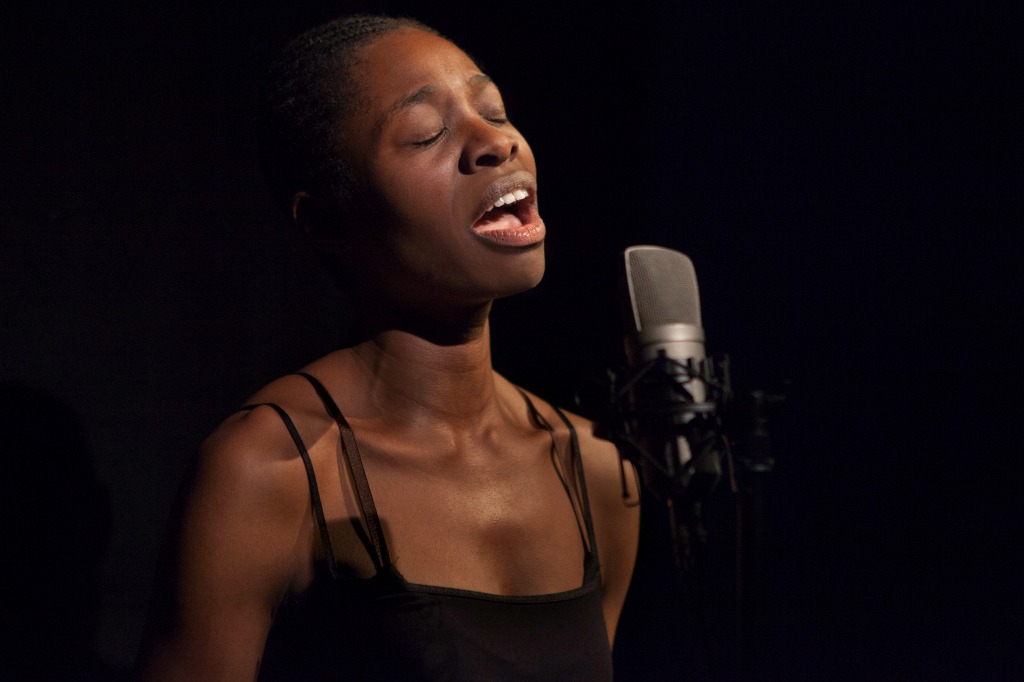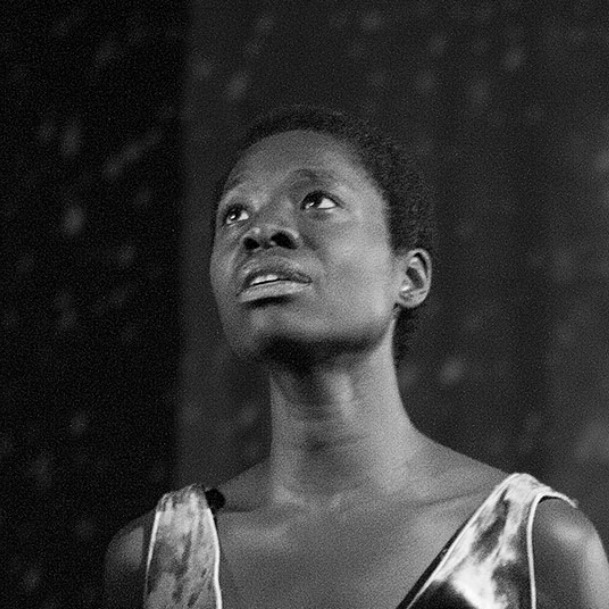Sing Your Secrets
There are secrets that you’re afraid to share with the world. Dreams. You think that when you share these dreams they will fall apart. The world will turn into a great pit and you will be swallowed up. Or everyone will laugh at you or shake their heads or just say: “Why didn’t you become a teacher?”
I had this secret that I wanted to sing and dance at the same time.
Growing up, I always loved making noise, but I also loved moving my body. I would make up fake ballet dances in my living room. Who knows where that came from?! I think that because my parents are from West Africa, music and dance were just a part of my life. No one was afraid to move their bodies, no one was afraid to make noise. That always seemed natural.
I’ve been taking classical singing lessons since I was eight years old. It’s a tradition that works your voice in a way that isn’t actually natural—you have to learn to make that “opera” sound. But after so many years, two university opera degrees, and a lot of different gigs, that voice became natural to me. But my voice and my body—the idea of singing and dancing together—got separated by all that training. I’ve had to go back to my past, or my roots, or something within me, to try to put voice and movement together again: to mash up my unnatural-turned-natural voice with what my body always wanted to do, which was move.

Century Song. Photo by John Lauener
I first shared this secret dream early in my relationship with my partner, Ross. We were driving to a camping trip and talking about how new work gets made, and I said something like, “I have ideas. It’s just that I don’t want to say them out loud.” And he was like, “Oh. Well. Why don’t you give it a try?”
I did. I spoke them out loud. I shared my dream. And the world didn’t turn into a great pit.
Ross, who’s a theatre director and the maker of many shows, suggested I get in touch with his friend, the choreographer Kate Alton. I knew Kate from a workshop we had done together a couple of years before, during which I had seen the amazing work she was capable of. I asked if she wanted to collaborate, and she said yes. Together, Kate and I began looking for music to work with. We soon decided upon vocalises—songs without words—because anytime we tried songs with lyrics, the words would get in the way. If a song already had meaning attached through text, Kate had trouble visualizing how to interpret it through movement. Wordlessness got rid of that problem.
In the studio, I discovered that I was able to meet what Kate’s choreography asked of me, and that was encouraging. After we finished a first draft of several songs set to movement, we invited Ross to come and have a look. When he and Kate stood back and watched, they both immediately, and independently, thought of Orlando by Virginia Woolf. They saw a person travelling through life, but in very different settings, because the songs were clearly from different time periods: Sergei Rachmaninoff from 1915, John Cage from 1950, a new piece Reza Jacobs wrote for us in 2014. That early experiment became the starting point. Okay! Maybe we can make a show, the three of us. And maybe I’ll speak up a little more often!
* * *
A year or two later, many elements of the show had been established—ideas of history and identity, music, visuals. But we still had this question: What IS this…? What are we trying to say…?
Around this time I discovered that I had spent most of my life singing as a white person. If I was performing in a Mozart opera, I would pretend I was the white person who would have been that character. Everything was two steps removed from me. I didn’t realize I was doing this until Kate asked me to reveal something of myself through the Rachmaninoff choreography—to use the deep information stored in my own body to inform the movement she was setting on me. I kept trying and not getting it and then I realized, OH. I’ve put on a mask. I’ve put on a layer that doesn’t exist in this case, because I’M the person making this show. This mask-wearing happens in life as well. You put on layers to appear the same as everyone else, to fit in, even if it’s just within your own mind.

Century Song. Photo by John Lauener
I think everything that we create as artists is an identity exercise of some kind. I guess we’re self-centred. It’s about us: Who am I? This is something that we are forever massaging, or looking into, or trying to figure out or understand or be curious about.
I don’t know why or how I came across Alice Walker’s In Search of Our Mothers’ Gardens, but that essay has become an inspiration for me personally and artistically.
Alice talks about Phyllis Wheatley, a woman sold into slavery in Boston during the 1700s who became a published poet. If you look up this slave’s poetry from our modern perspective you might think, How delusional is she to be writing beautiful poetry about people who enslave her? But Alice’s point is: how amazing is that? Within her circumstances, she was still an artist. I began to see Phyllis represented in the woman of Century Song. She helped me to find a version for my Orlando, a model for my time-traveller.
* * *
We move through cycles. At some point I realized that Phyllis Wheatley was also a mask. Phyllis isn’t that important to Century Song anymore. She and Alice Walker were really inspiring people to meet during the work, but the woman I perform on stage is not Phyllis Wheatley.
This woman is me. This woman is me in another time. It was mind-blowing to be able to do that, to be someone in another time, but also to be myself and not someone else.

Century Song. Photo by John Lauener
We move through cycles. That’s what humans do, that’s what artists do: daily cycles, monthly cycles, life cycles, historical cycles. We are caught in these cycles, and hopefully we learn, and then in that learning we are taken to a different place. We don’t see the picture in the same way anymore. It morphs and changes and we forget what the original was. And then we have to go through the whole process again.
I’ve been working on this show for over five years, and every time I perform Century Song it’s new again. I have to master my mind, the singing, the dancing, and then fill everything up with heart and self. It becomes a practice, a kind of meditation.
At the end of Century Song, I sing directly to the audience. I sing to the people who have been with me throughout the show for this whole time, and, in a larger sense, through this process of me finally sharing my secret, and finding a voice that is my own.









Comments